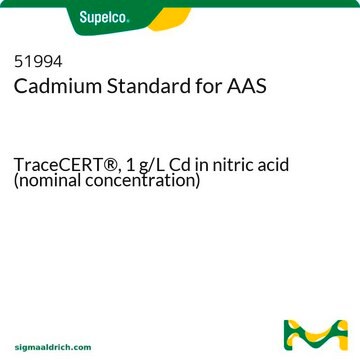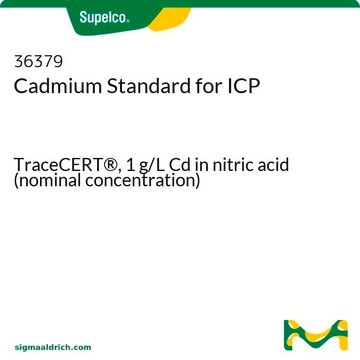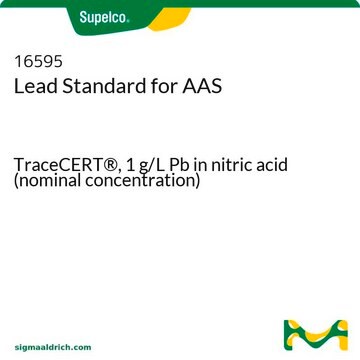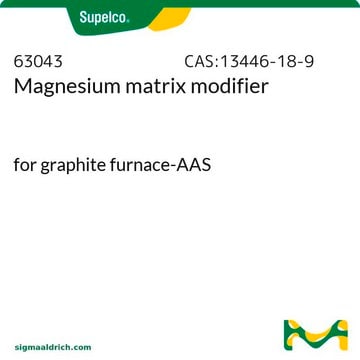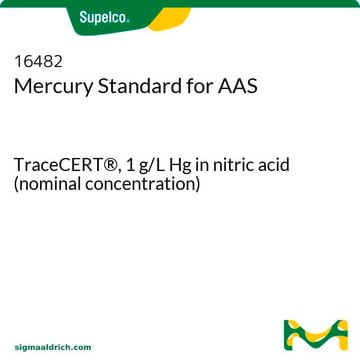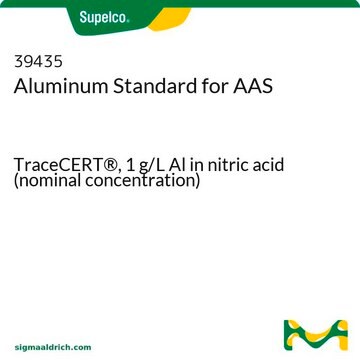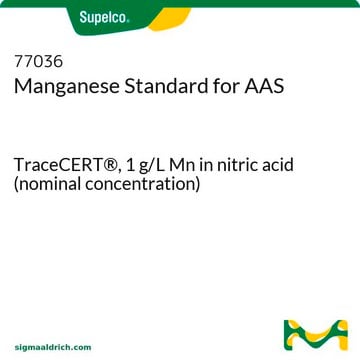05-0280
Cadmium standard solution
suitable for atomic absorption spectrometry, 1 mg/mL Cd+2, 1000 ppm Cd+2
Synonym(s):
Cadmium nitrate solution
About This Item
Recommended Products
form
liquid
availability
available only in Japan
concentration
1 mg/mL Cd+2
1000 ppm Cd+2
suitability
suitable for atomic absorption spectrometry
SMILES string
[Cd]
InChI
1S/Cd
InChI key
BDOSMKKIYDKNTQ-UHFFFAOYSA-N
Looking for similar products? Visit Product Comparison Guide
Signal Word
Danger
Hazard Statements
Precautionary Statements
Hazard Classifications
Carc. 1B - Muta. 1B - STOT RE 2
Target Organs
Kidney,Bone
Storage Class Code
6.1D - Non-combustible acute toxic Cat.3 / toxic hazardous materials or hazardous materials causing chronic effects
WGK
WGK 3
Flash Point(F)
Not applicable
Flash Point(C)
Not applicable
Personal Protective Equipment
Certificates of Analysis (COA)
Search for Certificates of Analysis (COA) by entering the products Lot/Batch Number. Lot and Batch Numbers can be found on a product’s label following the words ‘Lot’ or ‘Batch’.
Already Own This Product?
Find documentation for the products that you have recently purchased in the Document Library.
Customers Also Viewed
Our team of scientists has experience in all areas of research including Life Science, Material Science, Chemical Synthesis, Chromatography, Analytical and many others.
Contact Technical Service